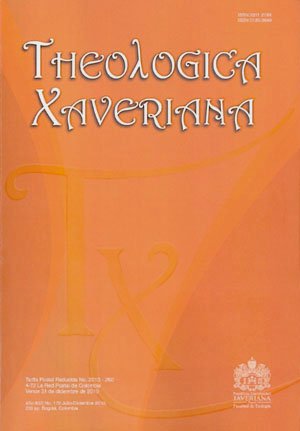Abstract
Epideixis –Demonstration of the apostolic preaching– is a brief and almost unknown work written by St. Irenaeus of Lyon, of which an Armenian manuscript was found in 1904. This work presents the procedures followed by the apostles when announcing the mystery of Christ by means of validation evidences found in the Old Testament. In this article we pay attention to the concrete study of the use of the Pentateuch made by the author in the first part of his book. Besides the analysis of the whole set of texts, their selection, way of use (additions, omissions, and changes when contrasting to the biblical texts), and the apocryphal references are also analyzed. Finally, a brief reflection about a possible original contribution from Irenaeus to the
teachings of the Holy Fathers is presented.
This journal is registered under a Creative Commons Attribution 4.0 International Public License. Thus, this work may be reproduced, distributed, and publicly shared in digital format, as long as the names of the authors and Pontificia Universidad Javeriana are acknowledged. Others are allowed to quote, adapt, transform, auto-archive, republish, and create based on this material, for any purpose (even commercial ones), provided the authorship is duly acknowledged, a link to the original work is provided, and it is specified if changes have been made. Pontificia Universidad Javeriana does not hold the rights of published works and the authors are solely responsible for the contents of their works; they keep the moral, intellectual, privacy, and publicity rights.
Approving the intervention of the work (review, copy-editing, translation, layout) and the following outreach, are granted through an use license and not through an assignment of rights. This means the journal and Pontificia Universidad Javeriana cannot be held responsible for any ethical malpractice by the authors. As a consequence of the protection granted by the use license, the journal is not required to publish recantations or modify information already published, unless the errata stems from the editorial management process. Publishing contents in this journal does not generate royalties for contributors.


